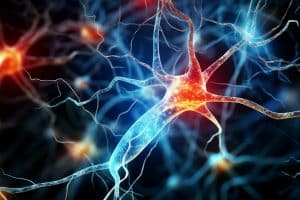What Is Peripheral Nerve Damage?
 One of the more devastating effects of a personal injury is nerve damage. The inability to feel your own body parts can be just as catastrophic as chronic pain – but that may not be the worst of it. Peripheral nerve damage, for example, can affect your heart’s ability to pump or your stomach’s ability to digest if it is severe enough.
One of the more devastating effects of a personal injury is nerve damage. The inability to feel your own body parts can be just as catastrophic as chronic pain – but that may not be the worst of it. Peripheral nerve damage, for example, can affect your heart’s ability to pump or your stomach’s ability to digest if it is severe enough.
According to the Mayo Clinic, peripheral nerve damage, also commonly called peripheral neuropathy, occurs “when the nerves that are located outside the brain and spinal cord (peripheral nerves) are damaged.” Your peripheral nervous system is in charge of communicating and sending messages from your brain and spinal cord to the other areas of your body.
What causes peripheral nerve damage?
Per the Mayo Clinic, peripheral nerve damage can occur when an individual experiences a serious infection, metabolic issues, toxin exposure or poisoning, or diabetes. However, this condition is also very common in individuals who have recently suffered a spinal cord injury, traumatic brain injury, a skull fracture, or any other type of injury that affects the brain or spinal cord. A few of the most common types of accidents that cause this condition include:
- Car accidents
- Truck accidents
- Motorcycle accidents
- Pedestrian accidents
- Bicycle accidents
- Workplace accidents
- Slip and fall accidents
- Product liability accidents
- Medical malpractice accidents
Peripheral nerve damage can occur during and after many types of accidents. If you suffer from this condition, you should consult with a Cherry Hill personal injury lawyer at your earliest convenience. They will help you build a strong legal case against the person or party who caused your accident, injuries, and nerve damage.
What are the symptoms of peripheral nerve damage?
If you are unsure of whether you have peripheral nerve damage, some of the symptoms you should keep an eye out for include:
- Numbness and tingling feelings
- Intense and chronic pain, which is often described as burning, throbbing, or sharp pains
- Sensitivity
- Weakness in your muscles
- Frequent falls
- Mobility problems
- Too much sweating or inability to sweat at all
- Blood pressure issues
- Feeling lightheaded or dizzy
- Inability to handle heat
- Digestive problems
- Trouble urinating
It is important to be aware of the fact that the symptoms you may experience depend on which nerves are affected. For example, you will likely suffer different symptoms if your motor nerves are damaged than you would if your sensory nerves are damaged. This is because you have different types of nerves in various areas of your body, which are responsible for different tasks and duties. It is also important to point out that some individuals mention that their symptoms ease or even disappear after some time, which is common for those who have an injury or infection that has the potential to heal or get better.
However, you will need to talk to a licensed medical provider about your peripheral nerve damage, as they will develop a unique treatment plan specifically for you, which may include prescribing medications to help you get through the pain and symptoms that you are experiencing. If you do not see a doctor or physician as soon as possible, your nerves may become worse, resulting in permanent and irreparable damage.
Can my peripheral nerve damage occur in multiple nerves?
Unfortunately, yes, peripheral nerve damage can occur in multiple nerves. If you are told that your peripheral nerve damage is only in one nerve, this is referred to as mononeuropathy. However, if you suffer from peripheral nerve damage in more than one nerve, you have what is called multiple mononeuropathy. There is also polyneuropathy, which means that many of your nerves are damaged, which is actually extremely common in patients with peripheral nerve damage.
Determining liability for your peripheral nerve damage
Determining liability for your peripheral nerve damage can be very challenging. However, your Cherry Hill personal injury attorney will make things as easy as possible by investigating the facts and circumstances of your accident to help you determine who should be held accountable for your nerve damage.
This will most likely be based on negligence, which means that a negligent motor vehicle driver, doctor, employer, business owner, manufacturer, or property owner could be liable for your accident, injuries, and nerve damage. Once you and your attorney determine who is responsible, you will work together to collect evidence and build a strong case showing that their negligent behavior caused your nerve damage. Here are a few examples of evidence that may be used to show this:
- Eyewitness testimonies
- Expert witness statements
- Photographs
- Video and surveillance footage
- Medical records and reports
- Police reports
- Workplace injury reports
- Medications and prescriptions
- Documents and receipts
At Ferrara & Gable, our Cherry Hill personal injury lawyers know and understand the difficulties that come with peripheral nerve damage. Therefore, we are here to guide you through the legal process, ensuring that everything remains as smooth and stress-free as possible for you. Our team is aware of the challenges that you are currently facing, which is why we do all that we possibly can to protect your rights and secure the compensation you are owed. If you would like to speak to an experienced and skilled attorney, please call our office or submit our contact form to schedule your free case evaluation today. We proudly serve clients throughout South Jersey.
